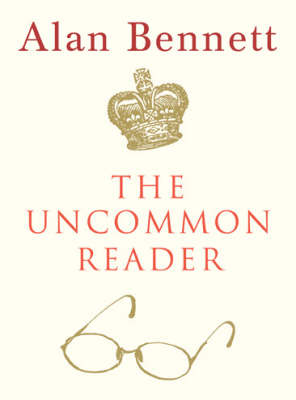 This is such a delightful and quirky book. I loved it from the opening passage. I know I’m a little late to the party since it was one of those books that was reviewed on every third book blog a few years ago.
This is such a delightful and quirky book. I loved it from the opening passage. I know I’m a little late to the party since it was one of those books that was reviewed on every third book blog a few years ago.
The uncommon reader refers to the Queen of England who discovers a travelling library one day behind her palace’s kitchens. Out of duty and obligation, she borrows one book by the only author that looks mildly familiar: Ivy Compton-Burnett.
‘What a treat!’ She hugged it unconvincingly before opening it. ‘Oh. The last time it was taken out was in 1989.’
‘She’s not a popular author, ma’am.’
‘Why, I wonder? I made her a dame.’
Mr. Hutchings refrained from saying that this wasn’t necessarily the road to the public’s heart. – p. 9
Unsuccessful with the book, the Queen returns it and borrows another – one Nancy Mitford’s The Pursuit of Love. This awakens a new and wonderful passion of books in the Queen. Always having had followed duty before personal interest, the Queen is aware that her passion for reading is an act of selfishness that excludes people, that reading is passive rather than active:
Her job was to taken an interest, not to be interesting herself. And besides, reading wasn’t doing. She was a doer. – p. 7
Her staff also have similar thoughts and infuriatingly concoct plans to halt the Queen’s reading rampage.
When the Queen’s love affair with reading begins to slow a few years down the track, she turns to writing. Over her reading years, she had always jotted down notes and thoughts from the books she’d read. The Queen feels writing is a much more suitable for her as she had, after all, always been a doer. Most importantly, it also allows the Queen to finally find her own voice.
This book was such a fun little read, filled with wry and sly humour, about the most unlikely tale of the most uncommon reader. The portrayal of the Queen was quite tragic though and makes you wonder who this woman really is, if it is a blessing or a curse that she has been Queen almost all her life and knows nothing else. While I was also slightly wary of any subtle, incidental propaganda, this book is above all an ode to the pleasures of reading.
What she was finding also was how one book led to another, doors kept opening wherever she turned and the days weren’t long enough for the reading she wanted to do. But there was regret, too, and mortification at the many opportunities she had missed. – p. 22
And this is one of my favourite sentences:
And it occurred to her (as next day she wrote down) that reading was, among other things, a muscle and one that she had seemingly developed. She could read the novel [Ivy Compton-Burnett’s] with ease and great pleasure, laughing at remarks … that she had not even noticed before. – p. 103